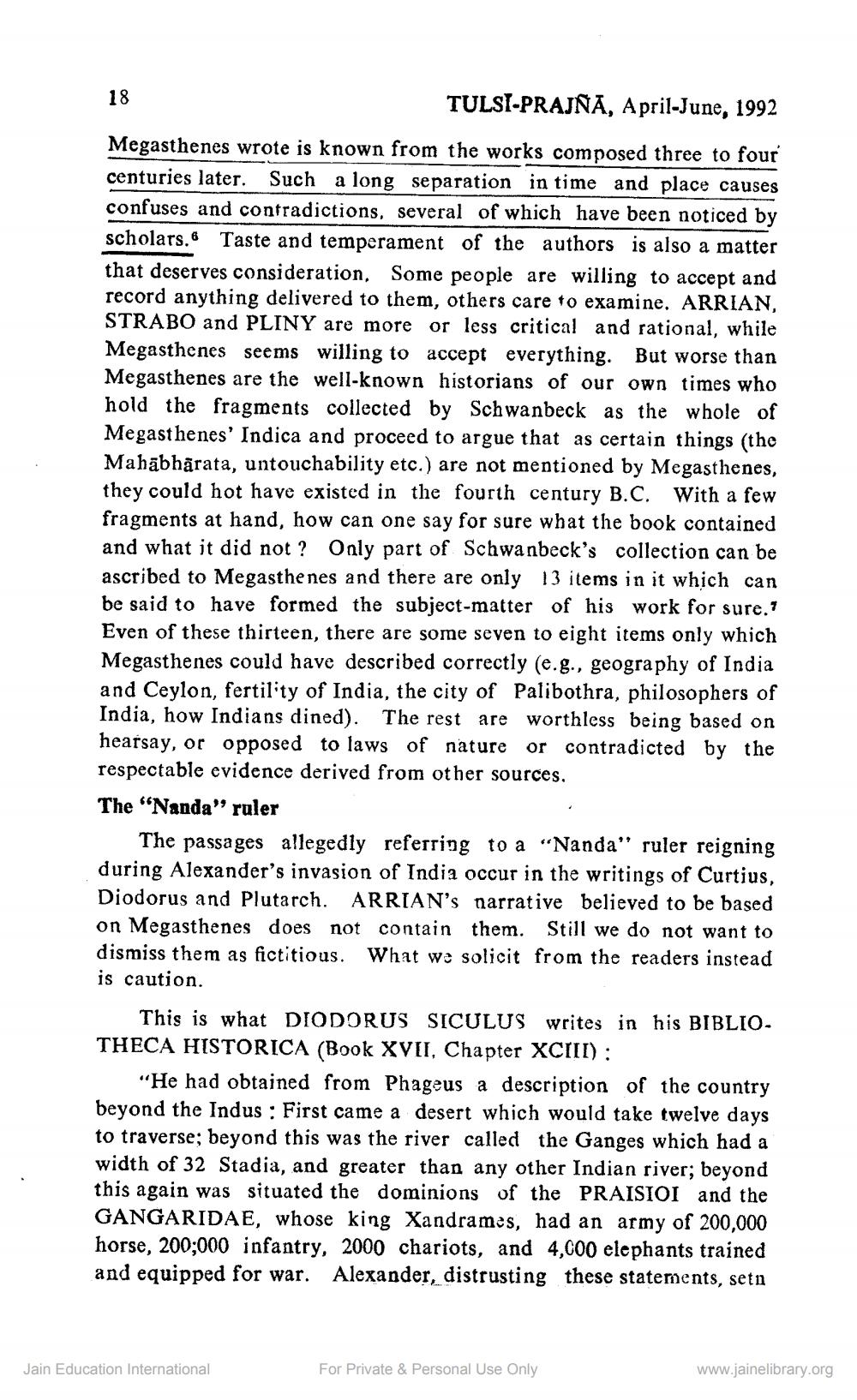________________
TULSI-PRAJNA, April-June, 1992
Megasthenes wrote is known from the works composed three to four centuries later. Such a long separation in time and place causes confuses and contradictions, several of which have been noticed by scholars. Taste and temperament of the authors is also a matter that deserves consideration, Some people are willing to accept and record anything delivered to them, others care to examine. ARRIAN, STRABO and PLINY are more or less critical and rational, while Megasthenes seems willing to accept everything. But worse than Megasthenes are the well-known historians of our own times who hold the fragments collected by Schwanbeck as the whole of Megasthenes' Indica and proceed to argue that as certain things (the Mahabharata, untouchability etc.) are not mentioned by Megasthenes, they could hot have existed in the fourth century B.C. With a few fragments at hand, how can one say for sure what the book contained and what it did not? Only part of Schwanbeck's collection can be ascribed to Megasthenes and there are only 13 items in it which can be said to have formed the subject-matter of his work for sure." Even of these thirteen, there are some seven to eight items only which Megasthenes could have described correctly (e.g., geography of India and Ceylon, fertility of India, the city of Palibothra, philosophers of India, how Indians dined). The rest are worthless being based on hearsay, or opposed to laws of nature or contradicted by the respectable evidence derived from other sources.
The "Nanda" ruler
18
The passages allegedly referring to a "Nanda" ruler reigning during Alexander's invasion of India occur in the writings of Curtius, Diodorus and Plutarch. ARRIAN's narrative believed to be based on Megasthenes does not contain them. Still we do not want to dismiss them as fictitious. What we solicit from the readers instead is caution.
This is what DIODORUS SICULUS writes in his BIBLIOTHECA HISTORICA (Book XVII, Chapter XCIII):
"He had obtained from Phageus a description of the country beyond the Indus: First came a desert which would take twelve days to traverse; beyond this was the river called the Ganges which had a width of 32 Stadia, and greater than any other Indian river; beyond this again was situated the dominions of the PRAISIOI and the GANGARIDAE, whose king Xandrames, had an army of 200,000 horse, 200;000 infantry, 2000 chariots, and 4,000 elephants trained and equipped for war. Alexander, distrusting these statements, setn
Jain Education International
For Private & Personal Use Only
www.jainelibrary.org




